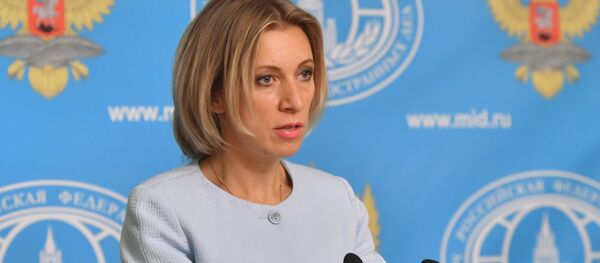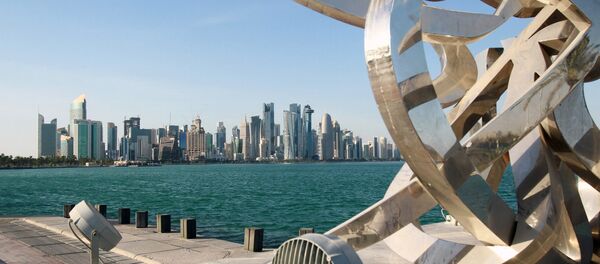Sputnik Mundo spoke with political analysts Paulo Botta and Federico Gaon about the rising tensions in the Middle East.
An expert on security in the Middle East, Paulo Botta, believes that there are no countries in the region that will willingly be “dragged into a very dangerous” foreign policy.
However, “Saudi Arabia interpreted the clear support of the United States as a carte blanche for pressure on other countries. Qatar in turn established its restrictions. Behind this move lies the intra-Arab quarrel over hydrocarbon resources. Qatar is the second country in the world with the most gas reserves after Russia,” Botta said.
Analysts named rapprochement with Iran and the search for their own foreign policy line as the main causes of the recent Qatari crisis.
This row primarily broke out two weeks after the visit of US President Donald Trump to Saudi Arabia, where he accused Iran of aiding and supporting terrorism and destabilizing the region.
Federico Gaon, also specializing in Middle Eastern issues, said that such aggression had never taken such a scale before.
“Economic sanctions against Qatar will have serious consequences. 90 percent of the products are imported from Saudi Arabia via land routes,” Gaon said.
The analyst feels that such a measure against Qatar is associated with the “performances of Donald Trump during his visit to the country.”
“It is no coincidence that Sunni states are settling their scores with Qatar,” the analyst added.
On June 6, Donald Trump wrote the following on his Twitter page:
“During my recent trip to the Middle East I stated that there can no longer be funding of Radical Ideology. Leaders pointed to Qatar – look!”
During my recent trip to the Middle East I stated that there can no longer be funding of Radical Ideology. Leaders pointed to Qatar — look!
— Donald J. Trump (@realDonaldTrump) June 6, 2017
Later on, Trump mentioned how good the trip to Saudi Arabia had been, hoping it would lead to a process that would put an end to terrorism.
Botta in his comment to Sputnik also pointed to another fact that should be taken into consideration: the timing.
"Over the past 25 years we have become accustomed to the fact that the United States was the only “external” power in the Middle East, but today Russia also needs to be taken into account. This is reflected in its role in Syria, its involvement in Yemen, Libya and cooperation with Egypt and Iran,” Botta said.
According to the analyst, “the Saudis are promoting a policy that in reality does not exist anymore.”
Meanwhile, Goan noted that Qatar is at a crossroad because it is impossible to be on the side of the Iranians, the Muslim Brotherhood and the conservative authorities of Egypt and Saudi Arabia all at the same time.
“The current situation is the way in which the countries of the region are showing that the time is up,” Goan concluded.



